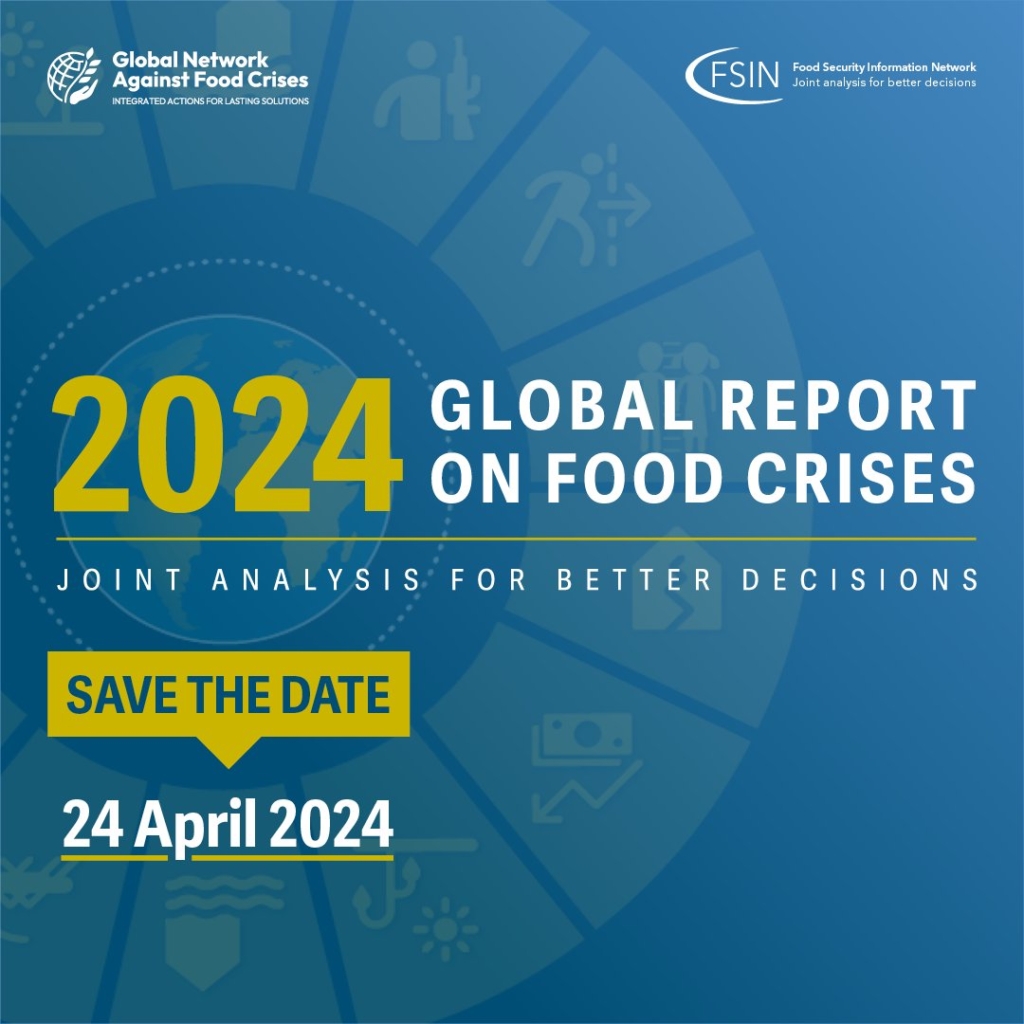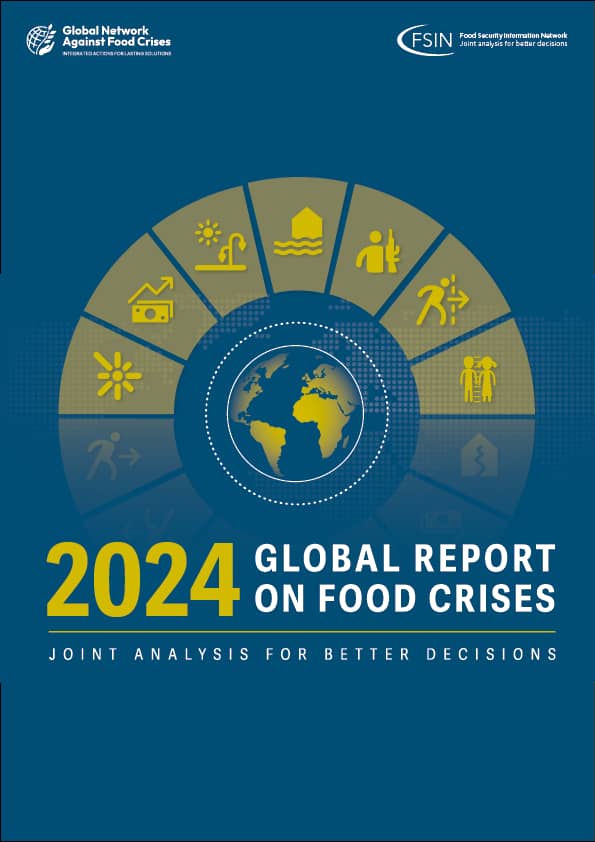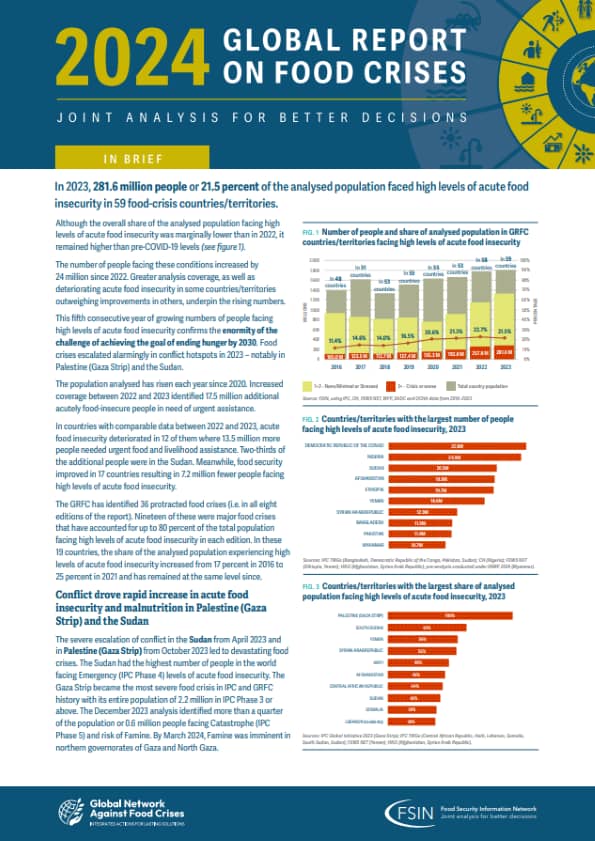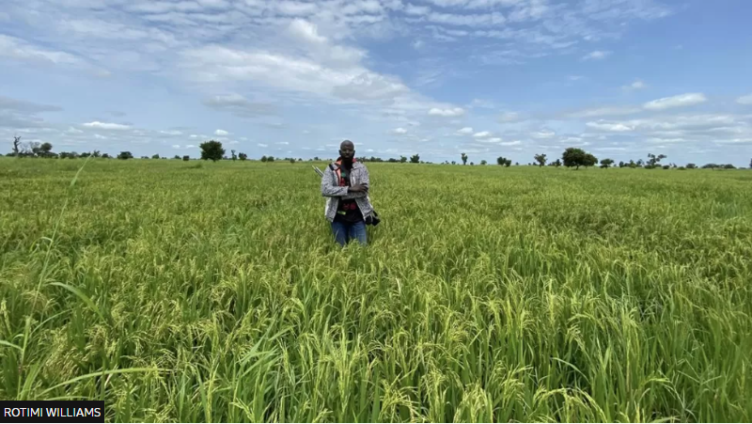About 282 million people, comprising 21.5% of the global population, faced significant levels of acute food insecurity across 59 food-crisis countries/territories in 2023.
According to the 2024 Global Report on Food Crises (GRFC) released by the Global Network Against Food Crises, although the overall proportion of the analyzed population experiencing acute food insecurity decreased slightly compared to 2022, it remained higher than pre-COVID-19 levels.
The report indicates that about 24 million more people faced acute food insecurity in 2023 compared to the previous year, with worsening conditions in some countries outweighing improvements in others.
Acute food insecurity escalated in 12 countries with comparable data between 2022 and 2023, resulting in an urgent need for assistance, particularly in Sudan, where about 14 million people required immediate aid.

However, food security improved in 17 countries with comparable data between 2022 and 2023, resulting in 7.2 million fewer people facing high levels of acute food insecurity.
The report reveals that over 36 million people in 39 countries/territories experienced emergency food insecurity, with more than a third of them located in Sudan and Afghanistan. About 166 million people in 41 countries/territories faced crisis, while around 292 million people in 40 countries were categorized as stressed.
In conflict zones, food crises intensified significantly, notably in Palestine (Gaza Strip) and Sudan. The Gaza Strip witnessed the most severe food crisis in Integrated Food Security Phase Classification (IPC) and GRFC history, the report said.

“The number of forcibly displaced people reached 90M in the 59 countries/territories – the highest in eight years of GRFC reporting – showing the high correlation between displacement and acute food insecurity. Sudan became the world’s biggest internal displacement crisis. By the end of 2023, almost 80% of the population of the Gaza Strip was internally displaced.”
Acute malnutrition among children and women also continued to worsen, particularly in conflict-affected regions. “In 2023, over 36M children under 5 years old were acutely malnourished in 32 food-crisis countries with data, of whom nearly 10M had severe acute malnutrition. Some 60% of these children were in the ten largest food crises.”
“Data gaps remain a concern. While food security analyses expanded coverage to an additional 178M people, particularly in vulnerable areas, data gaps remain a challenge with populations in 14 food-crisis countries not accounted for due to lack of data or data not meeting GRFC technical requirements,” the report indicated.
Populations projected to face catastrophe (IPC/CH Phase 5)
About 0.7 million people, with 0.6 million of them located in Palestine (Gaza Strip), were forecasted to experience catastrophe in five countries/territories in 2023.
More than a quarter of the Gaza Strip's population was expected to enter this phase from December 2023 to March 2024, with the risk of famine escalating as long as intense conflict and restricted humanitarian access persisted.
By March to July 2024, projections by GRFC suggested that over half of the Gaza Strip's population (1.1 million people) would be in catastrophe, with this figure rising to 70% in northern governorates where famine was imminent.
“Burkina Faso, Somalia, South Sudan and Mali also had populations facing catastrophic levels of acute food insecurity in 2023.”
Drivers of acute food insecurity
The report underscores that drivers of acute food insecurity are interconnected and compounded by structural vulnerabilities, complicating response and recovery efforts following a shock.
Conflict and insecurity emerged as the primary driver in 20 countries/territories, affecting 135 million people with high levels of acute food insecurity. This factor predominated in most of the ten largest food crises, either in terms of numbers impacted or the proportion of the population affected.
Weather extremes served as the primary driver in 18 countries, impacting over 72 million people with high levels of acute food insecurity. Many nations grappled with prolonged recovery from droughts or floods, exacerbated by the El Niño event and climate change-related weather phenomena, making 2023 the hottest year on record.

Economic shocks were identified as the main driver in 21 countries, impacting over 75 million people with high levels of acute food insecurity. Despite a decline in global food prices, this relief did not extend to low-income, import-dependent nations. Additionally, high levels of public debt constrained governments' ability to mitigate the effects of elevated prices.
Bleak outlook for 2024
Conflict and insecurity, particularly in Palestine (Gaza Strip), Sudan, and Haiti, are expected to remain the primary drivers of acute food insecurity throughout 2024, the report stated.
Despite El Niño peaking in early 2024, its full impact on food security, including flooding and poor rains in parts of East Africa and drought in Southern Africa (especially Malawi, Zambia, and Zimbabwe), is also anticipated to unfold over the year. While some regions may experience positive impacts, such as improved harvests in parts of East Africa and Latin America and the Caribbean, net food-importing, low-income countries with weakening currencies will continue to face challenges with high domestic food prices and weakened household purchasing power.
Decreasing humanitarian funding and rising delivery costs pose additional threats, resulting in reduced beneficiary numbers and food assistance rations among many food-insecure populations.
Latest Stories
-
French Open scheduling pleas ‘like hitting head against wall’
1 hour -
‘Angry’ Alcaraz beats Shelton to reach quarters
1 hour -
Spurs to complete £21m Danso signing
2 hours -
Manchester United second most valuable club despite struggles
2 hours -
Inter want Inzaghi to stay despite record final defeat
3 hours -
Barcelona in talks over free transfer swoop for Arsenal’s Thomas Partey
4 hours -
Man Utd confirm deal for Wolves’ Cunha
4 hours -
Two dead and hundreds arrested in France after PSG Champions League win
4 hours -
Three dead after fire in elderly ward at Hamburg hospital
4 hours -
Heartbreak as cash-strapped Nigerians abandon their pets
4 hours -
Mining in Motion: African leaders arrive in Ghana for landmark industry summit
5 hours -
Trump’s tariffs ‘not going away’ as deadline for deals loom, top adviser says
5 hours -
MTN Ghana honours community champions at 2025 Heroes of Change Awards
6 hours -
Ensuring sanity in the professional practice space – supporting our regulatory councils
7 hours -
UK backs Morocco’s autonomy plan for Sahara as credible basis for resolution, pledges support at all levels
7 hours

